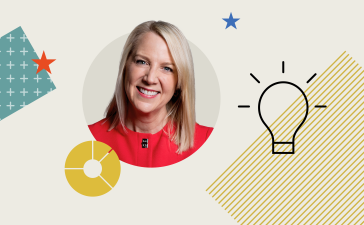Introduction: UK house prices edge up to hit two-year high
Good morning, and welcome to our rolling coverage of business, the financial markets and the world economy.
UK house prices have risen close to the record high set two years ago, a new survey this morning shows, as confidence in the market picks up.
Lender Halifax has just reported that the average price of a house sold in August rose to £292,505, the highest since August 2022. That’s only £1,000 shy of the record high set in June 2022.
Halifax’s monthly gauge of the housing market also shows that prices rose by +0.3% in August, following a rise of +0.9% in July.
On an annual basis, prices rose by +4.3%, the strongest year-on-year rise since November 2022.
Recent cuts to mortgage rates have helped buyers afford homes; that trend could continue, with the Bank of England expected to cut interest rates at least once more this year (after it started easing policy in August).
Halifax points out that this higher annual growth largely reflects the base impact of weaker prices a year ago.

Amanda Bryden, head of mortgages at Halifax, says:
“Recent price rises build on a largely positive summer for the UK housing market. Prospective homebuyers are feeling more confident thanks to easing interest rates. That optimism is reflected in the latest mortgage approval figures, now at their highest level in almost two years.
Such has been the resilience of house prices that the average property is now just £1,000 shy of the record high set in June 2022 (£293,507). While this is welcome news for existing homeowners, affordability remains a significant challenge for many potential buyers still adjusting to higher mortgage costs.
Reaction to follow….
Also coming up today
Global investors are bracing for the latest US jobs report, which will influence how quickly, and deeply, America’s central bank may cut interest rates.
Economists are hoping for a pick-up in hiring; expectations are for a 160,000 increase in payrolls in August, up from the disappointing 114,000 in July. The US unemployment rate is forecast to drop back to 4.2%, from 4.3%.
Jim Reid, strategist at Deutsche Bank, sets the scene:
After much anticipation, we have finally arrived at the latest US jobs report day, which is of crucial importance as the Fed decides how much to cut rates this month.
It was only five weeks ago that the last jobs report underwhelmed, with payrolls growth down to just +114k alongside negative revision to the previous couple of months. So the big question today is whether that disappointing report was just a blip, or was it the start of a more serious deterioration.
The agenda
-
7am BST: Halifax house price index for August
-
7am BST: German industrial output for July
-
9am BST: UN food price index
-
10am BST: Eurozone final GDP Q2 report
-
1.30pm BST: US non-farm payroll report for August
Key events
Rolls-Royce shares fall after EASA orders checks on Airbus A350-1000 engines
Shares in engineering firm Rolls-Royce have fallen over 1%, after Europe’s air safety regulator ordered inspections on the Airbus A350-1000 fleet, powered by its Trent XWB-97.
The European Union Aviation Safety Agency (EASA) acted after a Cathay Pacific A350-1000 suffered an engine fire on Monday.
EASA executive director Florian Guillermet said in a statement.
“This action is a precautionary measure, based on the information received from the initial investigation of the recent Cathay Pacific serious incident and on the airline’s findings in its own subsequent inspections.”
“We will continue to follow closely all information that will be made available through the ongoing safety investigation.”
The EASA explains that the flight from Hong Kong to Zurich “experienced an in-flight engine fire shortly after take-off”.
The regulator adds:
The fire was promptly detected and extinguished, and the aircraft returned safely to Hong Kong.
Rolls-Royce has confirmed that the Cathay Pacific aircraft was powered by its Trent XWB-97 engines.
Markets dip ahead of US jobs report
European stock markets are lower in early trading, as investors anticipate today’s US employment report (at 1.30pm UK time).
The FTSE 100 index is down 41 points, or 0.5%, at 8200 points. That would be its sixth daily loss in a row, its worst run since May.
Germany’s DAX has lost 0.45%, and France’s CAC is 0.3% lower.
UBS reports that the market mood remains cautious ahead of the US jobs data
Mark Haefele, chief investment officer at UBS Global Wealth Management, says:
“Given the importance of the jobs data, investors should brace for volatility in the wake of the release. Our base case remains for a soft economic landing, though recession risks have increased. We recommend focusing on long-term financial plans and ensuring adequate diversification.”
German industrial output falls more than expected
There’s more gloom in the German economy this morning, where factory output has fallen sharply.
German industrial production fell by 2.4% in July, statistics body Destatis reports, much worse than the 0.3% fall predicted by economists.
Production dropped by 8.1% in the automotive industry, following a 7.9% rise in June.
The declines in the manufacture of electrical equipment (-7.0%) and the manufacture of metal products (-3.8%) also had a significantly negative impact, Destatis adds.
Carsten Brzeski, global head of macro at ING, says:
A drop in German industrial production in July not only brings a weak start to the third quarter but is another illustration of how difficult it will be to bring the economy back to strong growth.
Today’s Halifax house price index adds to the evidence that we are in the early stages of a recovery in house prices, argues Peter Arnold, EY UK chief economist.
But, Arnold also predicts that house price growth will remain slow in the next couple of years.
He explains:
-
A second successive monthly increase suggests that house prices are in the early stages of a recovery. The EY ITEM Club attributes the upturn to mortgage affordability improving due to lower quoted mortgage rates and strong nominal wage growth.
-
The EY ITEM Club expects house price growth to remain in the slow lane over the next couple of years, with transactions staying relatively low. Though mortgage affordability is better than it was last summer, it remains very stretched. Other affordability metrics also remain high, which will continue to limit the pool of potential buyers.
UK homebuilder Berkeley says trading stable
UK house builder Berkeley has reported this morning that trading has been stable between 1 May 2024 to 31 August – the first four months of its current fiscal year.
Berkeley is also confident it will hit its profit targets, and is (predictably) backing the new government’s drive to speed up houebuilding.
It told the City:
Berkeley supports the proposed changes to the planning system and the Government’s aspiration to deliver 1.5 million new homes across this Parliament as part of its mission for growth.
Achieving this ambition requires a change of attitude and a refreshed partnership approach to allow developments, that are currently stalled, to come forward and Berkeley is committed to playing its full part in delivering the new homes the Country needs.
Jonathan Hopper, CEO of Garrington Property Finders, predicts we’ll see an “autumn bounce” in house prices – with buyers benefitting from more affordable mortgages.
After Halifax reported a rise in prices in August this morning, Hopper says:
“With interest rates falling across the board and some lenders now offering rates not seen since the Liz Truss era, thousands of buyers who had been sitting on the fence have sprung into action – with many setting themselves the goal of being ‘in by Christmas’.
“This upswing in demand is starting to push up prices strongly in some areas, but not all. Behind the momentum revealed by the national averages, prices are rising fastest in areas where value is strongest. In fact in the most expensive parts of London and the Southeast, we’re still seeing prices come down.
“That’s why the Halifax’s data shows average prices in Wales are rising nearly four times faster than those in London, while prices in North West England are outpacing those in the capital by nearly three to one.
Darktrace CEO Poppy Gustafsson stepping down

Mark Sweney
Poppy Gustafsson , the co-founder and chief executive of British cybersecurity firm Darktrace, is to leave the company following its $5.3bn (£4.2bn) sale to US private equity business Thoma Bravo.
Gustafsson, one of the most well-known figures in the UK tech industry, founded Darktrace in Cambridge in 2013 with the backing from the late billionaire tycoon Mike Lynch’s Invoke Capital.
In April, Thoma Bravo, which walked away from previous takeover talks in 2022, agreed a deal for the London-listed company which had been considered by analysts to be undervalued by investors.
Gustafsson is to step down with immediate effect and will be replaced by Jill Popelka, Darktrace’s current chief operating officer.
Gustafsson, who was awarded an OBE for services to cyber security in 2019, says:
““Darktrace has been a huge part of my life and my identity for over a decade and I am immensely proud of everything we have achieved in that time.
“Now is the right time to hand over the reins so Jill can lead Darktrace through its transition into private ownership and beyond. I remain Darktrace’s number one fan.”
Lynch and his wife Angela Bacares held a 6.8% stake in Darktrace which was worth £300m at the time of the sale.
Lynch died last month when his superyacht sunk off the coast of Italy in a storm.
Halifax’s house price index shows the UK property market is “continuing on its road to recovery”, says Liz Edwards, money expert at personal finance site finder.com:
“Today’s figures indicate that the UK property market is continuing on its road to recovery. Last week, data from the Bank of England revealed that mortgage approvals have risen to the highest level since the mini-Budget in September 2022. As well as this, many are confident that there will be further cuts to the base rate before the end of the year, which should help stimulate the housing market even further. In fact, when we recently surveyed a panel of experts, 80% predicted that there will be at least one more base rate cut before the end of 2024.
“There’s a chance that the upcoming October Budget could dampen buyer confidence slightly, as we wait to see what the new government has in store for our finances, but I think that any stall in the market is likely to be temporary.”
House prices continued to rise during the summer albeit at a slower pace. Increasing 0.3% on July’s efforts to £292,505.
On an annual basis Northern Ireland led the house price comeback, increasing +9.8%, followed by Wales +5.5%, the North West at +4.0%, then Scotland at +1.7% &… pic.twitter.com/XjQpAw91jw— Emma Fildes (@emmafildes) September 6, 2024
Northern Ireland records the strongest annual house price growth

Northern Ireland continues to record the strongest annual house price growth in the UK, Halifax reports.
Northern Ireland continues to record the strongest property price growth of any nation or region in the UK, rising by +9.8% on an annual basis in August. The average price of a property in Northern Ireland is now £201,043.
The average price of a property in Northern Ireland is now £201,043. House prices in Wales also recorded strong growth, up +5.5%, compared to the previous year, with properties now costing an average of £224,433.
Scotland saw a more modest rise in house prices, where a typical property now costs £205,144, +1.7% more than the year before.
The North West once again recorded the strongest house price growth of any region in England, up by +4.0% over the last year, to sit at £232,917.
London continues to have the most expensive property prices in the UK, now averaging £536,056, up +1.5% compared to last year.
Looking ahead, Halifax’s Amanda Bryden predicts that house prices will continue to rise during 2024:
“With market activity picking up and the possibility of further interest rate reductions to come, we expect house prices to continue their modest growth through the remainder of this year.”
Introduction: UK house prices edge up to hit two-year high
Good morning, and welcome to our rolling coverage of business, the financial markets and the world economy.
UK house prices have risen close to the record high set two years ago, a new survey this morning shows, as confidence in the market picks up.
Lender Halifax has just reported that the average price of a house sold in August rose to £292,505, the highest since August 2022. That’s only £1,000 shy of the record high set in June 2022.
Halifax’s monthly gauge of the housing market also shows that prices rose by +0.3% in August, following a rise of +0.9% in July.
On an annual basis, prices rose by +4.3%, the strongest year-on-year rise since November 2022.
Recent cuts to mortgage rates have helped buyers afford homes; that trend could continue, with the Bank of England expected to cut interest rates at least once more this year (after it started easing policy in August).
Halifax points out that this higher annual growth largely reflects the base impact of weaker prices a year ago.

Amanda Bryden, head of mortgages at Halifax, says:
“Recent price rises build on a largely positive summer for the UK housing market. Prospective homebuyers are feeling more confident thanks to easing interest rates. That optimism is reflected in the latest mortgage approval figures, now at their highest level in almost two years.
Such has been the resilience of house prices that the average property is now just £1,000 shy of the record high set in June 2022 (£293,507). While this is welcome news for existing homeowners, affordability remains a significant challenge for many potential buyers still adjusting to higher mortgage costs.
Reaction to follow….
Also coming up today
Global investors are bracing for the latest US jobs report, which will influence how quickly, and deeply, America’s central bank may cut interest rates.
Economists are hoping for a pick-up in hiring; expectations are for a 160,000 increase in payrolls in August, up from the disappointing 114,000 in July. The US unemployment rate is forecast to drop back to 4.2%, from 4.3%.
Jim Reid, strategist at Deutsche Bank, sets the scene:
After much anticipation, we have finally arrived at the latest US jobs report day, which is of crucial importance as the Fed decides how much to cut rates this month.
It was only five weeks ago that the last jobs report underwhelmed, with payrolls growth down to just +114k alongside negative revision to the previous couple of months. So the big question today is whether that disappointing report was just a blip, or was it the start of a more serious deterioration.
The agenda
-
7am BST: Halifax house price index for August
-
7am BST: German industrial output for July
-
9am BST: UN food price index
-
10am BST: Eurozone final GDP Q2 report
-
1.30pm BST: US non-farm payroll report for August








